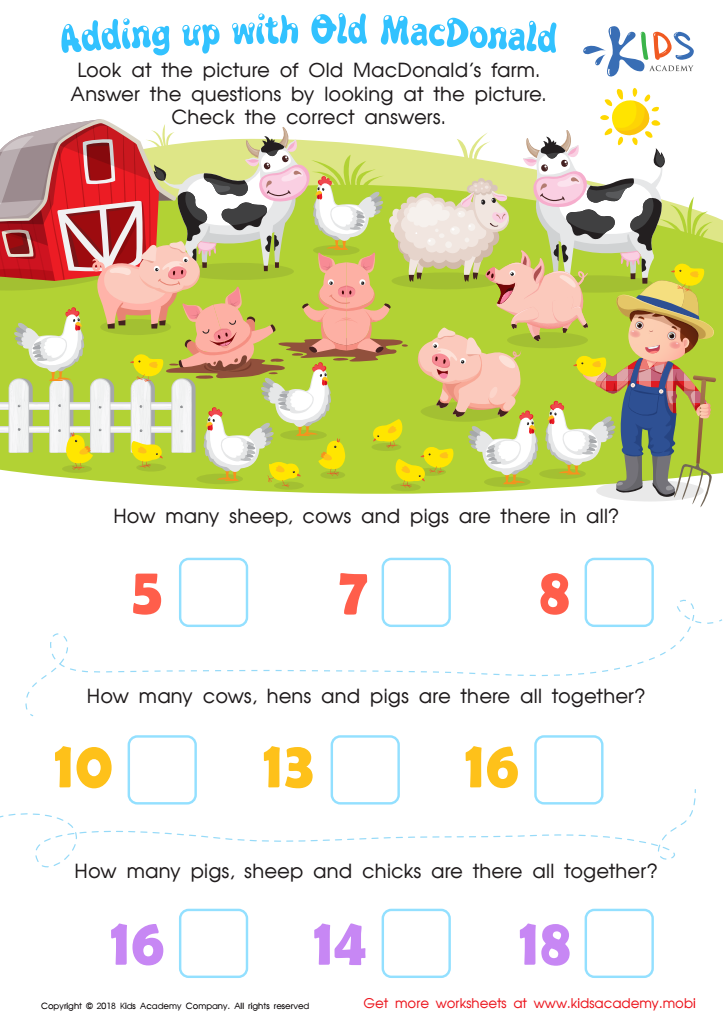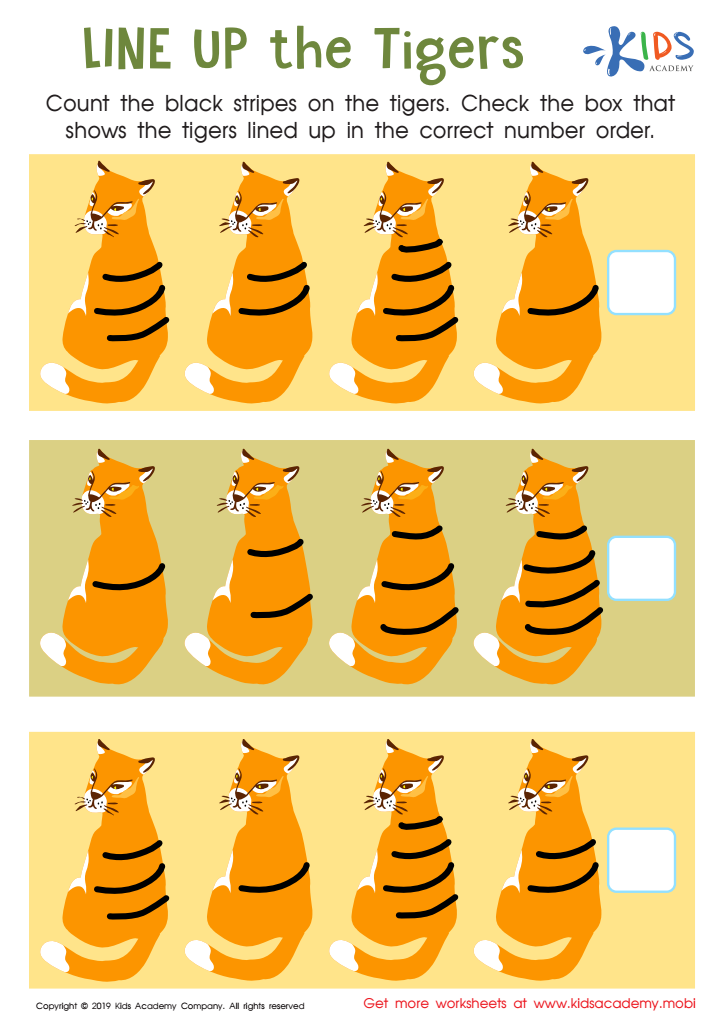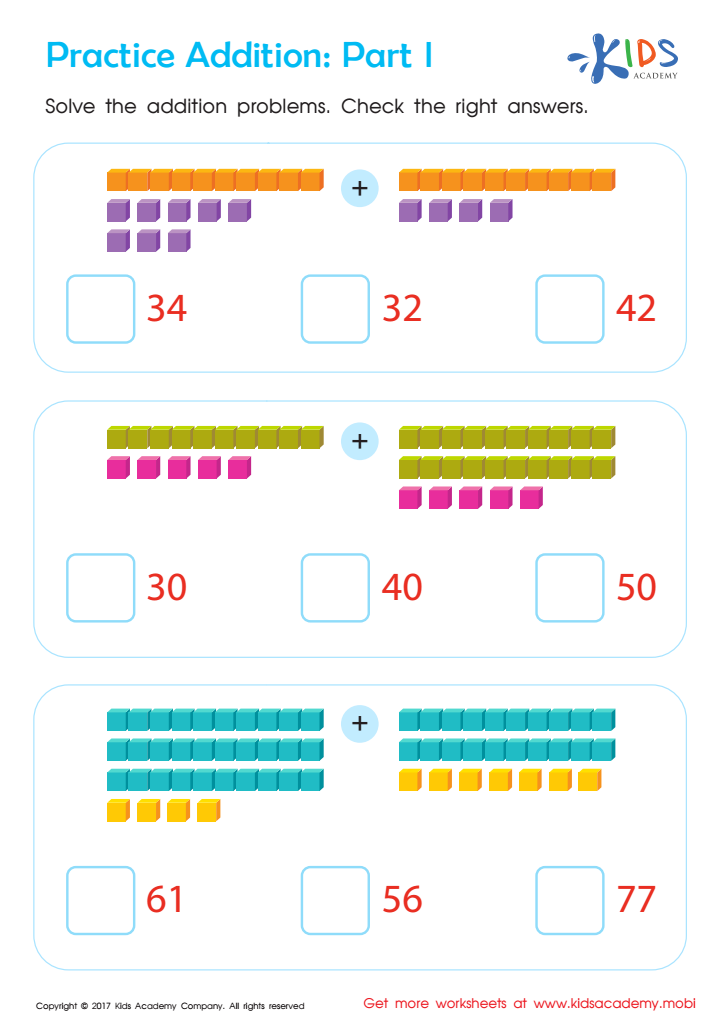Basic Arithmetic Easy Addition & Subtraction Worksheets for Ages 3-6
3 filtered results
-
From - To
Welcome to our "Basic Arithmetic Easy Addition & Subtraction Worksheets" designed specifically for children aged 3-6! Our engaging worksheets make learning foundational math skills enjoyable and accessible. Featuring colorful visuals and simple problems, these worksheets help young learners practice addition and subtraction in a fun and supportive environment. By working through these activities, kids will develop confidence in their math abilities, enhance their problem-solving skills, and lay a solid groundwork for future math success. Perfect for home or classroom use, our resources are tailored to inspire a love for learning and foster essential numeracy skills at an early age.
Explore our worksheets today!


Adding Up with Old MacDonald Worksheet


Line up the Tigers Worksheet


Practice Addition: Part 1 Worksheet
Basic arithmetic, particularly easy addition and subtraction, lays the foundation for a child's mathematical understanding. For children aged 3-6, these skills are essential as they foster early cognitive development and logical thinking. Parents and teachers should prioritize these foundational concepts because they are not only critical for academic success but also for everyday problem-solving.
Engaging young learners in basic addition and subtraction helps develop their number sense, enhancing their ability to recognize patterns, compare quantities, and understand the relationships between numbers. Moreover, these skills promote confidence in their abilities, encouraging a positive attitude towards mathematics as they progress in their educational journey.
Additionally, mastering simple arithmetic contributes to essential life skills, such as managing money, telling time, and measuring, empowering children in their daily activities. Through interactive and playful teaching methods, such as games and hands-on activities, learning becomes enjoyable, thereby fostering a love for learning in young minds.
By investing time and resources in teaching basic arithmetic, parents and teachers play a crucial role in shaping a child's educational trajectory, ensuring they are well-equipped to tackle more complex mathematical concepts in the future. Ultimately, developing these skills now will ensure a brighter academic and personal future for each child.
 Assign to My Students
Assign to My Students




















